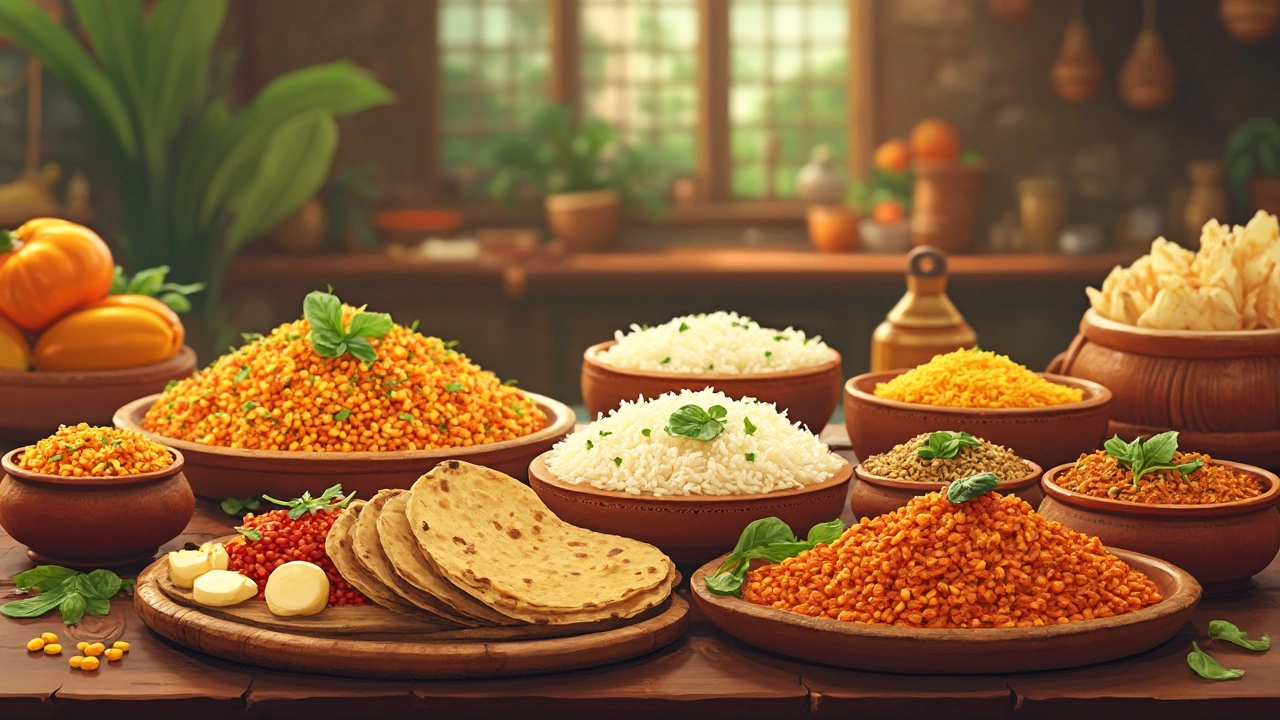Carb‑Rich Foods: Fuel Your Body the Right Way
Carbs get a bad rap, but for anyone who moves – whether you run, lift, or just chase the kids – they’re the go‑to fuel. They break down into glucose, the sugar your muscles love to burn for power. Skipping carbs can leave you dragging, cramping, or feeling foggy. The good news? Lots of tasty, everyday foods pack a serious carb punch without feeling like a diet hack.
Not all carbs are created equal. Simple carbs, like candy, spike your blood sugar fast and crash just as quick. Complex carbs – whole grains, starchy veggies, legumes – release energy more slowly, keeping you steady through a long workout or a busy day. Aim for the complex side most of the time and save simple carbs for a quick pre‑run boost or post‑session refuel.
When you pair carbs with a bit of protein, you get better muscle repair and less muscle‑soreness. That combo is why many athletes plan meals around carb‑rich staples and then add chicken, fish, or beans. Below are the crowd‑pleasers that athletes swear by.
Top Carb‑Rich Foods for Athletes
Here are the easiest, most nutrient‑dense carbs you can stock in your pantry or fridge:
Oats – A bowl of cooked oats gives you about 27 g of carbs plus fiber that slows digestion. Top with berries and a spoon of nut butter for extra fuel.
Brown Rice & Quinoa – Both provide 45‑55 g of carbs per cup with a handful of minerals. Quinoa also throws in a full set of essential amino acids.
Sweet Potatoes – One medium sweet potato delivers roughly 24 g of carbs plus beta‑carotene. Roast, mash, or slice into fries for variety.
Whole Wheat Pasta – A classic carb source that gives about 40 g of carbs per cup. Pair with lean meat or a tomato‑based sauce for a balanced plate.
Bananas – Easy, portable, and packed with about 27 g of carbs plus potassium to keep cramps at bay.
Beans & Lentils – Offer 20‑40 g of carbs per cup plus lots of protein and fiber. Great in salads, soups, or as a side.
Whole Grain Bread – Two slices supply roughly 30 g of carbs. Use for toast, sandwiches, or a quick avocado‑egg bite.
How to Include Carbs in Your Daily Meals
Start your day with a carb‑centered breakfast – think oatmeal, whole grain toast, or a smoothie with banana and mango. That jump‑starts your glycogen stores for morning training or work.
Mid‑day, aim for a balanced lunch: a serving of brown rice or quinoa, lean protein, and veggies. If you’re short on time, a bean salad or a whole‑grain wrap does the trick.
Before a workout, grab a simple carb snack like a banana, a small granola bar, or a slice of toast with honey. Eat 30‑60 minutes beforehand so the glucose is ready in your bloodstream.
After you finish, refuel within two hours. A combo of carbs and protein – such as a chocolate milk, a turkey sandwich on whole grain bread, or a fruit‑yogurt parfait – helps replenish glycogen and jump‑starts muscle repair.
For longer endurance events (marathons, cycling tours), consider a carb‑loading phase 3‑4 days before the race. Increase your carb intake to about 70 % of total calories, focusing on the foods listed above. The extra glycogen stored in your muscles can make the difference between a steady finish and hitting the wall.
Bottom line: you don’t need fancy supplements to get enough carbs. Load up on whole, tasty foods, time them around your training, and you’ll notice steadier energy, stronger performance, and quicker recovery. Start swapping a few refined carbs for these power‑packed options and feel the difference in your next workout.

